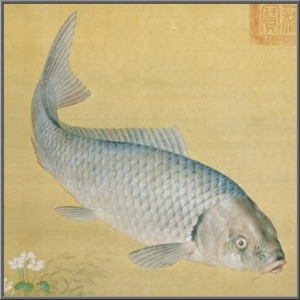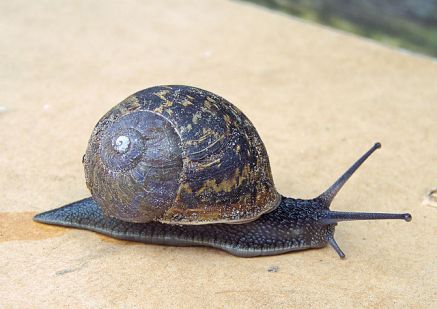“On the left horn of the snail there is a kingdom which is called
Provocation, and on the right horn another which is called Stupidity.”
I enjoy stories from ancient days, if only for the lesson that people really haven’t changed much. Here is a favorite from Zhuangzi, about a king angry over a broken treaty and the counsel of his advisors, who sound to me a lot like the military-industrial complex that President Eisenhauser warned us about:
(King) Yung of Wei made a treaty with the marquis Thien Mâu (of Khî), which the latter violated. The king was enraged, and intended to send a man to assassinate him. When the Minister of War heard of it, he was ashamed, and said (to the king), ‘You are a ruler of 10,000 chariots, and by means of a common man would avenge yourself on your enemy. I beg you to give me, Yen, the command of 200,000 soldiers to attack him for you. I will take captive his people and officers, halter (and lead off) his oxen and horses, kindling a fire within him that shall burn to his backbone. I will then storm his capital; and when he shall run away in terror, I will flog his back and break his spine.’ Kî-Tsze heard of this advice, and was ashamed of it, and said (to the king), ‘We have been raising the wall (of our capital) to a height of eighty cubits, and the work has been completed. If we now get it thrown down, it will be a painful toil to the convict builders. It is now seven years since our troops were called out, and this is the foundation of the royal sway. Yen would introduce disorder;– he should not be listened to.’ Hwâ-tsze heard of this advice, and, greatly disapproving of it, said (to the king), ‘He who shows his skill in saying “Attack Khî!” would produce disorder; and he who shows his skill in saying “Do not attack it ” would also produce disorder. And one who should (merely) say, “The counsellors to attack Khî and not to attack it would both produce disorder,” would himself also lead to the same result.’ The king said, ‘Yes, but what am I to do?’ The reply was, ‘You have only to seek for (the rule of) the Tâo (on the subject).’
Hui-tsze, having heard of this counsel, introduced to the king Tâi Tsin-zan, who said, ‘There is the creature called a snail; does your majesty know it?’ ‘I do.’ ‘On the left horn of the snail there is a kingdom which is called Provocation, and on the right horn another which is called Stupidity. These two kingdoms are continually striving about their territories and fighting. The corpses that lie on the ground amount to several myriads. The army of one may be defeated and put to flight, but in fifteen days it will return.’ The king said, ‘Pooh! that is empty talk!’ The other rejoined, ‘Your servant begs to show your majesty its real significance. When your majesty thinks of space– east, west, north, and south, above and beneath– can you set any limit to it?’ ‘It is illimitable,’ said the king; and his visitor went on, ‘Your majesty knows how to let your mind thus travel through the illimitable, and yet (as compared with this) does it not seem insignificant whether the kingdoms that communicate one with another exist or not?’ The king replies, ‘It does so;’ and Tâi Tsin-zan said, finally, ‘Among those kingdoms, stretching one after another, there is this Wei; in Wei there is this (city of) Liang; and in Liang there is your majesty. Can you make any distinction between yourself, and (the king of that kingdom of) Stupidity?’ To this the king answered, ‘There is no distinction,’ and his visitor went out, while the king remained disconcerted and seemed to have lost himself.
When the visitor was gone, Hui-tsze came in and saw the king, who said, ‘That stranger is a Great man. An (ordinary) sage is not equal to him.’ Hui-tsze replied, ‘If you blow into a flute, there come out its pleasant notes; if you blow into a sword-hilt, there is nothing but a wheezing sound. Yâo and Shun are the subjects of men’s praises, but if you speak of them before Tâi Tsin-zan, there will be but the wheezing sound.’
__________________________________
Image — The common garden snail Helix aspersa, by Rasbak, via Wikipedia
Story — Chuang Tzu (Zhuangzi), via Nothingistic.org

